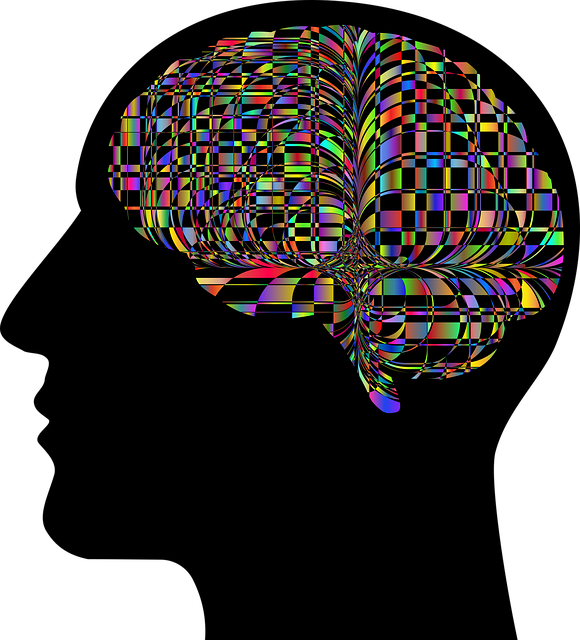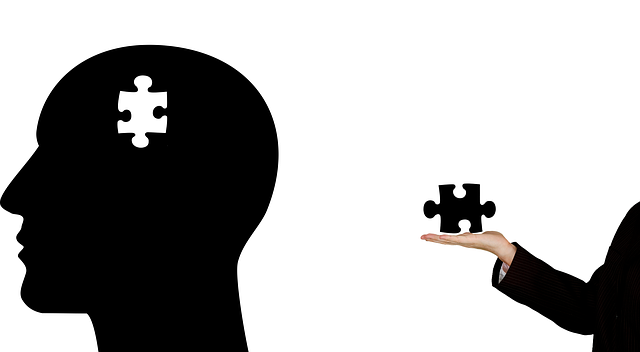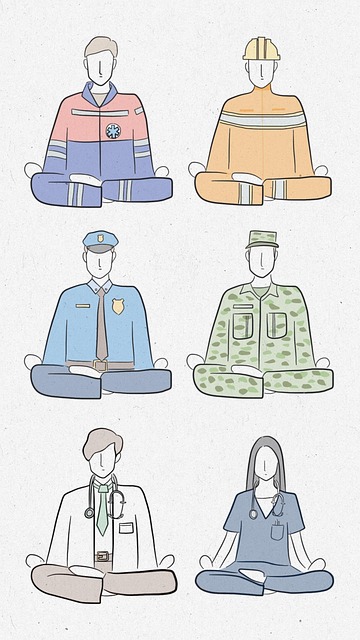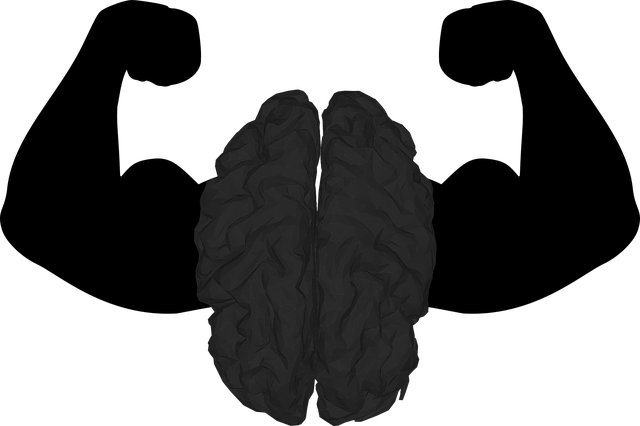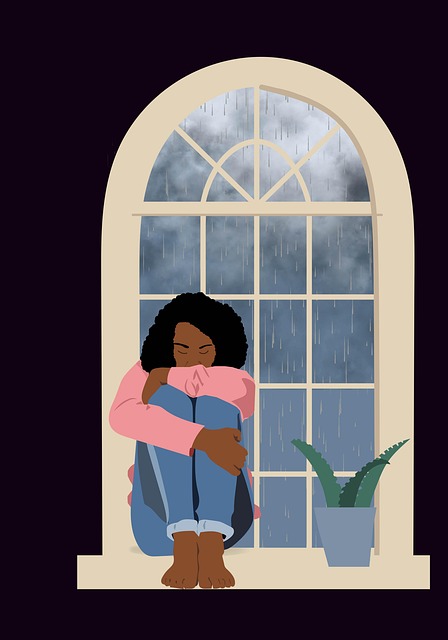Mental health diagnosis in children faces challenges due to societal stigma and developing brains. The Mental Wellness Podcast Series raises awareness and encourages open conversations about childhood mental health, improving diagnosis accuracy through resources like play therapy, CBT, and couples counseling. Early intervention is key, with targeted therapy helping children express themselves and build resilience. Couples counseling enhances family communication, addressing intergenerational trauma. Integrating evidence-based practices like CBT and mindfulness meditation deepens insights into child emotions, enabling precise diagnoses. Overcoming barriers to mental health services through education and crisis guidance ensures access to tailored treatments like couples counseling, mood management workshops, and stress reduction techniques, ultimately enhancing mental wellness for children and families.
Mental illness diagnosis accuracy is a critical aspect of overall well-being, especially in children. This article explores current challenges in understanding mental health diagnosis in young minds and delves into innovative strategies to enhance accuracy. We discuss the transformative power of early intervention and therapy for vulnerable children, highlighting couples counseling as a game-changer for families. Additionally, we emphasize the importance of integrating evidence-based practices and promoting accessible quality mental health services for all, ensuring better outcomes through targeted interventions like therapy for young children and couples counseling.
- Understanding Mental Health Diagnosis in Children: Current Challenges
- The Role of Early Intervention and Therapy for Young Minds
- Couples Counseling: Supporting Families and Enhancing Communication
- Integrating Evidence-Based Practices for Accurate Assessment
- Promoting Access to Quality Mental Health Services for All
Understanding Mental Health Diagnosis in Children: Current Challenges

Mental health diagnosis in children is a complex field fraught with challenges. While significant strides have been made in recognizing and treating mental illness in adults, young minds present unique complexities. The developing nature of childhood brain structures can make it difficult to differentiate normal behavioral variations from potential signs of distress or disorder. This issue is exacerbated by the fact that children often struggle to articulate their feelings, making accurate diagnosis a daunting task for healthcare professionals.
Moreover, societal stigma surrounding mental health issues in children further complicates matters. Many parents and caregivers may be reluctant to seek help, fearing judgment or labeling their child. This reluctance can delay necessary intervention, hindering the development of effective treatment plans, such as therapy for young children and couples counseling, designed to address specific needs. The Mental Wellness Podcast Series Production offers valuable resources aimed at raising awareness, dispelling myths, and encouraging open conversations about childhood mental health, ultimately contributing to improved diagnosis accuracy and enhanced mental wellness for all children.
The Role of Early Intervention and Therapy for Young Minds

Early intervention plays a pivotal role in improving mental illness diagnosis accuracy and outcomes, especially for young minds. By implementing therapy for young children as soon as signs or symptoms emerge, mental health professionals can prevent the escalation of conditions like anxiety, depression, or trauma-related disorders. Therapy for young children often involves play therapy, cognitive behavioral therapy (CBT), and other age-appropriate approaches tailored to their unique needs. These interventions help youngsters express themselves, develop coping mechanisms, and build resilience, fostering a healthier emotional foundation as they grow.
Additionally, involving parents or caregivers in the process through couples counseling can significantly enhance treatment effectiveness. Couples counseling equips families with the skills to support their child’s mental health, improve communication, and manage any intergenerational trauma or stress that may contribute to the child’s difficulties. Integrating mood management strategies and self-esteem improvement techniques into therapy further empowers both children and their caregivers, fostering a more supportive environment for recovery and overall well-being.
Couples Counseling: Supporting Families and Enhancing Communication

Couples counseling plays a pivotal role in improving mental illness diagnosis accuracy and supporting families, especially when it comes to young children. By fostering open communication between partners, this therapeutic approach helps address underlying issues that may be contributing to or masking mental health problems. When both parents are involved, they can learn effective stress reduction methods to manage family dynamics and create a more supportive environment for their child’s mental wellness.
Through couples counseling, families gain insights into building inner strength in both parents and children. This empowerment enables better recognition of emotional cues and early intervention when concerning behaviors emerge. Additionally, this approach can enhance the overall production of a Mental Wellness Podcast Series, providing valuable content on navigating stress, fostering resilience, and promoting mental health awareness within families.
Integrating Evidence-Based Practices for Accurate Assessment

Integrating evidence-based practices is a key strategy to enhance the accuracy of mental illness diagnoses, especially for young children. Therapy techniques like cognitive behavioral therapy (CBT) and mindfulness meditation have proven effective in assessing and managing various mental health conditions. By incorporating these practices, professionals can gain deeper insights into a child’s emotional state and behaviors, leading to more precise diagnoses. For instance, CBT helps identify negative thought patterns and dysfunctional beliefs, while mindfulness meditation teaches children to stay present and manage stress effectively.
This approach not only improves diagnosis accuracy but also paves the way for tailored treatment plans. Incorporating mental wellness coaching programs further enhances this process by teaching both children and their couples counseling partners coping strategies and communication skills. Such programs development should focus on integrating evidence-based practices, ensuring that every aspect of assessment and intervention is grounded in research, ultimately fostering better outcomes for young individuals navigating mental health challenges.
Promoting Access to Quality Mental Health Services for All

Ensuring access to quality mental health services is a cornerstone in improving diagnosis accuracy and overall well-being. This involves breaking down barriers that prevent individuals, especially young children and couples, from seeking therapy. Many communities face challenges such as limited resources, stigma, and lack of awareness, hindering people from accessing much-needed support. To address these issues, organizations are promoting comprehensive mental health education and integrating crisis intervention guidance into various settings.
By making therapy more accessible, whether through specialized services for young children or couples counseling, individuals can receive timely interventions. Mood management and stress management workshops organized by dedicated groups empower people with coping strategies, fostering a sense of resilience. These efforts collectively contribute to creating an environment where mental health is prioritized, leading to more accurate diagnoses and effective treatment plans tailored to individual needs.
Mental illness diagnosis accuracy is a multifaceted issue that demands a holistic approach. By addressing challenges in understanding childhood mental health, implementing early intervention strategies, promoting couples counseling for family support, integrating evidence-based assessment practices, and ensuring equitable access to quality mental health services, we can significantly improve diagnostic accuracy. These efforts not only enhance the well-being of young minds but also foster stronger families and communities.
